
Scientists believe alien life could exist under 'impossible' conditions
Scientists have found that one of the key pillars of theory around how life works – that it depends on carbon – may not be the case on other planets. Here on Earth, life depends on organic compounds which are composed of carbon, and often involve other elements such as sulphur, oxygen, hydrogen, nitrogen and phosphorus. With organic compounds, life is partly sustained by chemical interactions called autocatalysis, which are self-sustaining. That means they produce molecules which then enable the reaction to happen again, and do not need any outside influence to keep going on. In the new study, scientists looked for autocatalysis in non-organic compounds. The theory is that if autocatalysis helps drive a process called abiogenesis – the origin process for life – then this origin process could also come from non-organic matter. Betül Kaçar, an astrobiologist, bacteriologist and evolutionary biologist at the University of Wisconsin-Madison, told news outlet Space.com: “It's important to explore these possibilities so that we have an idea of what all forms of life can look like, not just Earth life.” "One of the major reasons that origin-of-life researchers care about autocatalysis is because reproduction — a key feature of life — is an example of autocatalysis. “Life catalyses the formation of more life. One cell produces two cells, which can become four and so on. “As the number of cells multiply, the number and diversity of possible interactions multiplies accordingly.” The scientists searched in a huge trove of existing scientific documents for examples of autocatalysis, and found 270 different cycles of the reactions. Most of the 270 examples did not feature organic compounds, but rather elements which are rare in life forms such as mercury, or the radioactive metal thorium. “It was thought that these sorts of reactions are very rare,” Kaçar said in a statement. “We are showing that it's actually far from rare. You just need to look in the right place.” Now, it means scientists can test these cycles to get a better understanding of how autocatalysis can work. “The cycles presented here are an array of basic recipes that can be mixed and matched in ways that haven't been tried before on our planet,” said study author Zhen Peng, also an evolutionary biologist at the University of Wisconsin-Madison. “They might lead to the discovery of completely new examples of complex chemistry that work in conditions where carbon- or even silicon-based cycles are too either combusted or frozen out.” The scientists published their findings in the Journal of the American Chemical Society. Sign up to our free Indy100 weekly newsletter Have your say in our news democracy. Click the upvote icon at the top of the page to help raise this article through the indy100 rankings.
2023-09-25 23:21

OpenAI's ChatGPT will 'see, hear and speak' in major update
OpenAI's ChatGPT is getting a major update that will enable the viral chatbot to have voice conversations with
2023-09-25 22:56
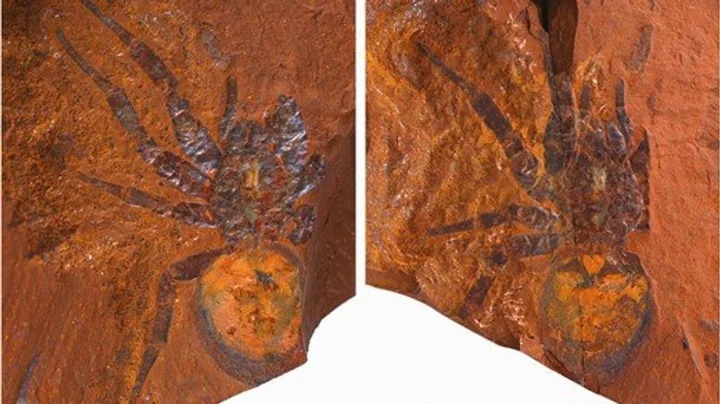
Scientists find 'giant' dinosaur spider fossil in Australia
If you thought Australia’s spiders were scary, wait until you see the prehistoric version. Scientists have found a fossilised giant trapdoor spider in New South Wales, only the fourth specimen of its kind to be found in Australia. The creature would have roamed and hunted in the surrounding areas which were once a lush rainforest, researchers said in a recently filed report. Last year, scientists unearthed fossils of the rainforest area from millions of years ago, teeming with specimens including plants, trapdoor spiders, giant cicadas and wasps. Now the area is a grassland region known as McGraths Flat. Researchers have named the spider fossil ‘Megamonodontium mccluskyi’. It would have lived in the Miocene period 11m to 16m years ago. “Only four spider fossils have ever been found throughout the whole continent, which has made it difficult for scientists to understand their evolutionary history,” said palaeontologist Matthew McCurry of the University of New South Wales and the Australian Museum. “That is why this discovery is so significant, it reveals new information about the extinction of spiders and fills a gap in our understanding of the past. “The closest living relative of this fossil now lives in wet forests in Singapore through to Papua New Guinea. “This suggests that the group once occupied similar environments in mainland Australia but have subsequently gone extinct as Australia became more arid.” The spider was found among many other Miocene fossils. In some of them, the fossils were so well preserved that subcellular structures could be made out. “Scanning electron microscopy allowed us to study minute details of the claws and setae on the spider's pedipalps, legs and the main body,” said virologist Michael Frese of the University of Canberra. The details meant scientists could confidently place it near the modern Monodontium, or trapdoor spider. However, it is five times larger than its modern day relatives. Megamonodontium mccluskyi's body is 23.31 millimetres long – that is just over an inch. The discovery of the species also tells us something of the past climate of Australia, the report added. The fact that it was found in a layer of rainforest sediment means the region was once much wetter than it is now. That could, in turn, help scientists understand how a warming climate has already altered the country’s life forms – and how it might change them again. "Not only is it the largest fossilized spider to be found in Australia but it is the first fossil of the family Barychelidae that has been found worldwide," said arachnologist Robert Raven of Queensland Museum. "There are around 300 species of brush-footed trapdoor spiders alive today, but they don't seem to become fossils very often. "This could be because they spend so much time inside burrows and so aren't in the right environment to be fossilized." The findings were published in the Zoological Journal of the Linnean Society. Sign up to our free Indy100 weekly newsletter Have your say in our news democracy. Click the upvote icon at the top of the page to help raise this article through the indy100 rankings.
2023-09-25 22:22
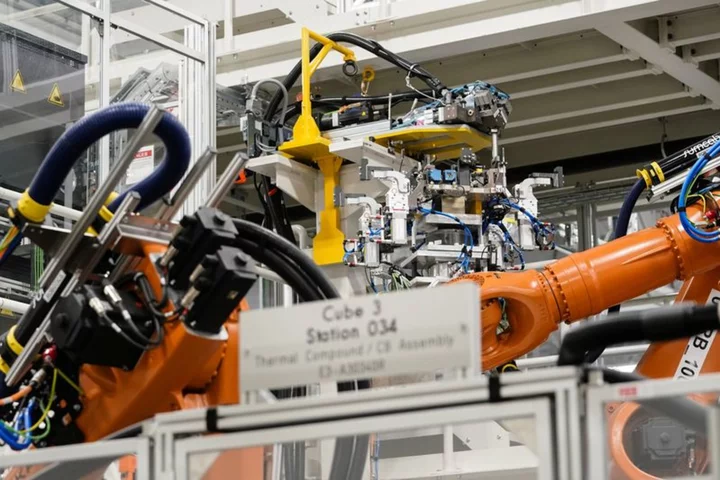
Mercedes applies for tax relief for projects at two U.S. plants
BERLIN German carmaker Mercedes-Benz has applied for tax breaks for potential projects at two of its U.S. plants
2023-09-25 22:20

Google Pixel 8 camera will include ‘creepy’ face-changing AI
Google’s next flagship smartphone will feature an AI-powered camera that can automatically alter the expression on someone’s face, according to a leaked video. The Google Pixel 8 and Google Pixel 8 Pro, which are set to be unveiled on 4 October, have already been partially revealed by the US tech firm, which has a habit of teasing its devices before the official release date. The latest promo video, posted by reliable leaker Kamila Wojciechowska, shows Pixel 8 users radically adjusting the appearance of photo subjects “with a tap”. “Reimagine an image with Magic Editor from Google Photos,” the video states. “It’ll make you wonder, can a phone be made of magic? Nope, it’s AI.” The video generated excitement among Pixel owners on social media, though some expressed concern about the camera’s abilities. “I am sold on the Pixel 8 series,” one user of X, formerly Twitter, posted. “The head swap kinda creepy though.” Similar to Apple with its latest iPhone 15 series, the tech giant is expected to place a major emphasis on the phone’s camera, with other leaks and rumours surrounding Google’s next Pixel devices suggesting both versions will feature a 50 megapixel main camera, together with a 10.5 megapixel front camera. The Pixel 8 Pro will feature an additional rear camera that offers telephoto capabilities and 5x optical zoom. Key specs have also been leaked, most notably the inclusion of a Tensor G3 chipset that will enable better processing power. The price for the standard version is expected to be £699 in the UK and $699 in the US, while the premium version will cost £999 in the UK and $899 in the US. Anyone who pre-orders the Pixel 8 Pro will also receive a free Pixel Watch 2. Google does not comment on leaks or rumours about unreleased products. Read More 10 ways AI will change the world – from curing cancer to wiping out humanity Pixel 6 pre-order: How to get Google’s new phone Google Pixel 6 release date revealed for ‘iPhone killer’ Google Pixel buds A-series review: AirPods for the Android crowd
2023-09-25 21:46

Spotify makes AI voice clones of podcasters and uses them to speak other languages
Spotify has cloned the voices of its top podcasters and will use them to translate podcasts into other languages. Presenters including Lex Fridman and Kristen Bell now have podcasts on Spotify in which they interview their guests in Spanish – despite those conversations never actually having happened. Instead, Spotify took those podcasts and used a range of artificial intelligence technologies to create a match of their voice. They then translated the podcasts and used the voice clone to read them back out, giving an interview that is in another language but nonetheless sounds as if it was being spoken by the actual presenters. The company hopes that the technology means that people can listen to natural-sounding podcasts that were originally English – even if they do not speak the language. The technology is available for a limited number of podcasts in Spanish already, and Spotify will collect them in a devoted part of the app, and will also appear as a suggestion when someone starts listening to a relevant podcast. Soon it expects to use the technology for French and German, and will apply it to more podcasts. “By matching the creator’s own voice, Voice Translation gives listeners around the world the power to discover and be inspired by new podcasters in a more authentic way than ever before,” said Ziad Sultan, Spotify’s vice president of personalisation, in a statement. “We believe that a thoughtful approach to AI can help build deeper connections between listeners and creators, a key component of Spotify’s mission to unlock the potential of human creativity.” Spotify has already rolled out a number of other AI-powered features, including its AI DJ, which not only chooses songs but uses an artificial voice to introduce them. Like that AI DJ, the new translation technology is built on tools provided by OpenAI, the creators of ChatGPT. It said the current techologies are “just the beginning”. “The creator and audience feedback from the pilot will provide important insights for future expansion, iterations, and innovations,” Spotify said in its announcement, and it said it would “continue exploring new ways to overcome barriers to storytelling”. Read More Tesla robot shown practising yoga Meta plans to develop ‘sassy robot’ chatbot for young users, report says Nasa just delivered a piece of a distant asteroid to Earth
2023-09-25 21:29

'Where is the phone?' Huawei keeps quiet about Mate 60 Pro but takes aim at Tesla
Huawei has disappointed legions of fans — and US officials — eager to know more about its Mate 60 Pro smartphone, which has quickly become a symbol of the tech rivalry between the United States and China since it went on sale last month.
2023-09-25 21:29
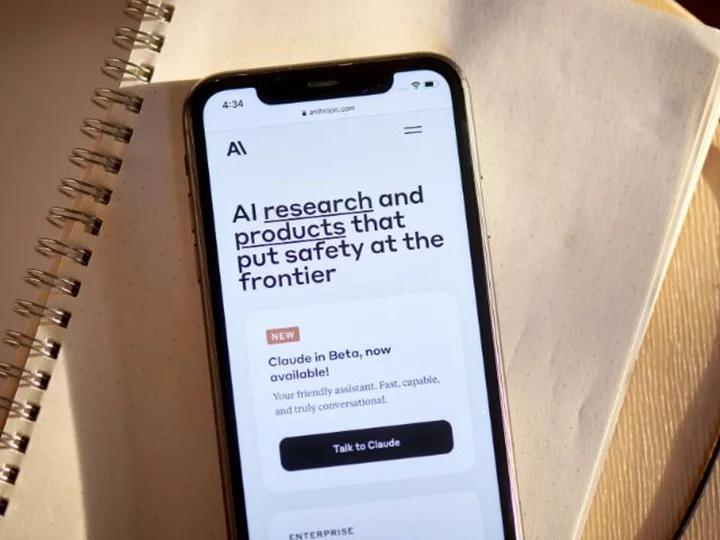
Amazon invests $4 billion in Anthropic AI in exchange for minority stake and further AWS integration
Amazon said on Monday that it's investing $4 billion into the artificial intelligence company Anthropic in exchange for partial ownership and Anthropic's greater use of Amazon Web Services (AWS), the e-commerce giant's cloud computing platform.
2023-09-25 21:23

Indonesia may issue regulation on social media e-commerce this week -president
JAKARTA (Reuters) -Indonesia may issue on Tuesday a regulation on the use of social media to sell goods in the
2023-09-25 20:17
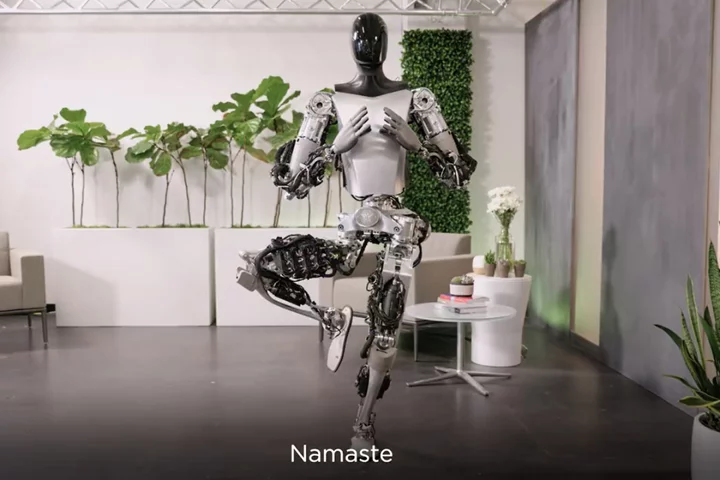
Tesla unveils new yoga-practicing robot
Tesla has unveiled the latest version of its humanoid robot, demonstrating its ability to adapt to its environment and even perform yoga poses. It is significant progress for the Optimus bot, which was unable to walk unassisted just one year ago. “Optimus is now capable of self-calibrating its arms and legs,” stated a video showing off the robot. “Accurately calibrated, Optimus learns various tasks more efficiently... For example, it can now sort blocks by colour fully autonomously. And it does so while dealing with the dynamic reality of our world.” Tesla CEO Elon Musk shared the video on X, formerly known as Twitter, with the caption “progress”. Mr Musk has previously said that Tesla’s humanoid robot has the potential to be “more significant” than the company’s car business. It is being developed to replace low-skilled labour, with its humanoid form designed to allow it to carry out human tasks, ranging from shopping in a supermarket to working on factory production lines. “Essentially in the future, physical work will be a choice,” Mr Musk said when the robot was first announced in 2021. “It has profound implications for the economy, given that the economy at its foundational level is labour.” New details from the tech billionaire’s authorised biography also revealed that he told employees that Optimus was the key to turning Tesla into a $10 trillion company. Tesla is yet to give any information about Optimus’s price or release date, though early versions are expected to be tested on the company’s vehicle production line. At last year’s Tesla AI Day, Mr Musk said deliveries could take place within three-to-five years, though his estimates are typically overly ambitious. Tesla is also currently undertaking a recruitment drive to help speed up the development of Optimus, with more than 50 positions listed on its website relating to robotics. Read More Elon Musk and the one trillion-dollar algorithm that explains everything he does Elon Musk warns of ‘civilisational risk’ posed by AI at historic gathering Cybertruck sparked secret Tesla revolt, Elon Musk biography reveals Volcano discovery could power electric cars for decades, scientists say
2023-09-25 19:28

People don’t become adults till they’re in their 30s, research suggests
Ever felt a bit immature? Well, don't worry. People don't become fully "adult" until they're in their 30s, according to experts. While, in the UK, we legally become adults at 18, research suggests people in their late teens are still going through significant changes in the brain. Professor Peter Jones, from Cambridge University, told the BBC back in 2019: "What we're really saying is that to have a definition of when you move from childhood to adulthood looks increasingly absurd. "It's a much more nuanced transition that takes place over three decades." He added: "I guess systems like the education system, the health system and the legal system make it convenient for themselves by having definitions." When you reach 18, you can vote, buy alcohol, get a mortgage and are also treated as an adult if you get in trouble with the police. Despite this, Professor Jones says he believes experienced criminal judges recognise the difference between a 19-year-old defendant and a "hardened criminal" in their late 30s. "I think the system is adapting to what's hiding in plain sight, that people don't like (the idea of) a caterpillar turning into a butterfly," he said. "There isn't a childhood and then an adulthood. People are on a pathway, they're on a trajectory." Meanwhile, in an interview with PBS, Dr Jay Giedd, chair of child psychiatry at Rady Children’s Hospital-San Diego, said that the development of the prefrontal cortex, the part of the brain responsible for social interactions, regulating emotions, controlling impulsive behaviour, and assessing risk, doesn’t stop at age 18. Instead, he said it takes almost 25 years. So give yourself a break unless you are in your 30s. And if you are? Grow up. Sign up to our free Indy100 weekly newsletter Have your say in our news democracy. Click the upvote icon at the top of the page to help raise this article through the indy100 rankings.
2023-09-25 17:49
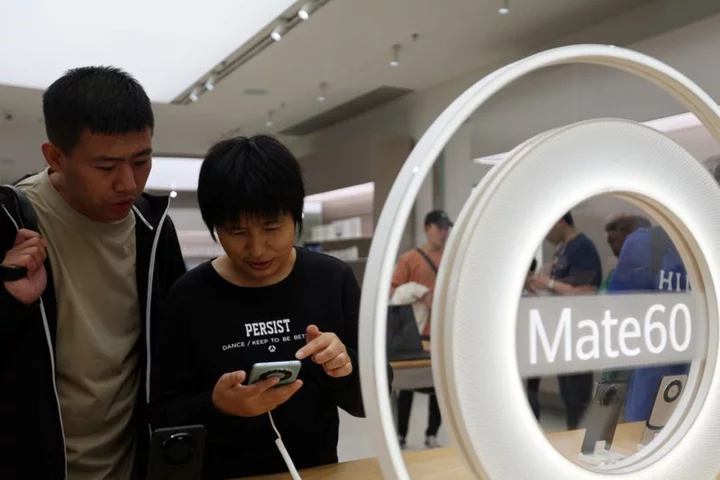
Huawei starts product launch event by thanking China for its support
By Yelin Mo and Brenda Goh BEIJING/SHANGHAI (Reuters) -Huawei Technologies kicked off a product launch event on Monday by thanking
2023-09-25 16:54
